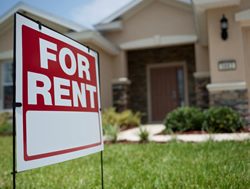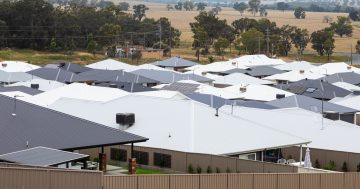Paul Clitheroe* says a new report pulls no punches about investing in property, concluding that 60 per cent of investors would have earned better returns putting their money into super.
 There was a time when, for many Australians, the word ‘investing’ meant owning a rental property.
There was a time when, for many Australians, the word ‘investing’ meant owning a rental property.
Like buying a home to live in, buying a property to rent out and, hopefully, sell at a profit one day, is an easy concept to grasp. It’s a more tangible investment than shares or exchange traded funds, and I am sure this goes a long way to explaining the popularity of property.
While a residential property investment can appear to be straightforward, getting it right can take a lot more than meets the eye. In fact, it’s fair to say that direct investment in property normally requires greater care, is more complex and has more pitfalls than any of the other mainstream asset classes.
A new report by PEXA and LongView backs up this view, but it goes further, suggesting that the Australian property system is not working for anyone – neither landlords nor renters.
The report, titled Private renting in Australia – a broken system, shows that renters face stiff competition to secure a rental home, and have very little security when they do find one. SQM Research reports a national rental vacancy rate of just 1.0 per cent. In Perth, it’s less than half that at 0.4per cent. Nationally, rents have soared 22 per cent in the past year.
The upshot is that renters face real challenges at present.
However, as the PEXA report points out, the system doesn’t work for many landlords either.
It notes that property investment is often complex, stressful, and risky. It can also be vastly more time-consuming than expected, and unanticipated maintenance costs are not uncommon. Just like owning a home, a property investment can be a constant source of expense. You hand over the money…and then you hand over some more…and so on it goes.
Yes, some of these expenses can be claimed on tax. But investors need to be able to stump up the cash in the first place.
It’s a very different situation from investing in shares and exchange traded funds (ETFs) where you hand over your money and then sit back and wait for the investment to start delivering returns.
Strikingly, the PEXA report says that since 1990, approximately 60 per cent of all property investors would have profited more by investing in superannuation. This would surprise plenty of investors, so it’s worth a closer look.
According to the research, over the 30 years between 1990 and 2020, investment properties held for between four and ten years recorded a return of about 6.3 per cent. By contrast, superannuation has historically delivered a 7.4 per cent after-tax return over the long term, more than 1per cent higher than property. The diversification of super across many assets and asset classes means it is also less risky than investing in one or two properties.
Many investors find the holding costs and time involved in owning a rental property, can quickly take the shine off being a landlord. This partly explains why half of all investment properties exit the rental market within five years.
Don’t get me wrong, a well-chosen, well-priced property can be a good long term investment. But it’s worth asking yourself a few questions before you start inspecting properties listed for sale:
- Is the income you need to meet interest payments and other outgoings secure?
- Do you clearly understand the risks involved?
- Have you looked into the costs involved in holding the investment?
- Can you easily sell the property if your situation changes, and what is the cost of doing so?
- Are you doing this in the hope of getting a tax break through negative gearing or is the property a sound long term investment?
If you’re unsure about any of the answers, property may not be the right investment for you. I realise that sharemarket investing can test our mettle when markets are volatile, but the only cash outflow is usually when you buy into stocks. Thereafter, the money should all flow your way.
*Paul Clitheroe is a founding director of leading financial planning firm ipac, and has been involved in the investment industry since he graduated from UNSW in the late 1970s.
This article first appeared at investsmart.com.au











